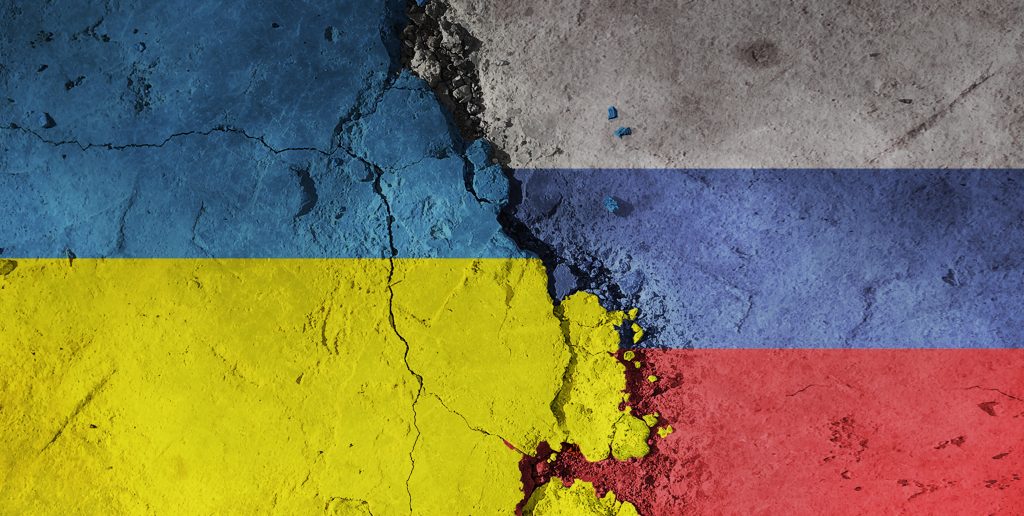Rob Jones, an expert in event hosting contracts in sport at TSC Legal, looks at how Russia’s invasion of Ukraine has impacted not only the global political, economic and social landscape but also the sports sponsorship/events landscape.

Event owners due to stage events in Russia and other sports clubs, leagues and national/international federations may face a decision on their future relationships with their Russian commercial partners.
At TSC Legal, we have particular expertise in negotiating and advising on event hosting and sponsorship rights contracts for a range of sporting stakeholders. We can provide clarity on a party’s contractual position and offer tailored negotiation strategies recognising the wider context and implications involved, including political and cultural sensitivities.
The starting point for any consideration of rights and remedies at a time like this must by the wording of the contract governing the activity. These contracts will obviously be confidential, but there are some general points of principle that are worth examining. These include:
Governing Law:
The laws which govern the contract will (amongst other things) provide clarity on the parties’ rights/remedies under the contract.
My comments below are provided on the basis the applicable contract is governed by the laws of England & Wales.
Force Majeure:
Force majeure is a legal concept, usually enshrined in standard contractual terms that relate to a specified list of events and circumstances that are (for example):
- beyond a party’s reasonable control; and/or
- reasonably unforeseeable by a party; and/or
- prevent the performance of a party’s contractual obligations.
If we take the latter example, this would be easy to satisfy in respect of an event scheduled to be held in Ukraine but would it be physically or legally impossible for a particular event to be staged in Russia? This criterion is likely to be satisfied if the conflict escalates, international federations sanction events from being staged in Russia or if athletes are restricted from travelling to Russia.
Some additional considerations that may be included in the force majeure terms are:
- How long the force majeure event must be ongoing?
- What rights/obligations will continue (if any) during a force majeure event – payment of fees?
- Does either party have the right to cancel and/or terminate a contract, and/or a refund of any fee payments as a result of a force majeure event?
Event Postponement / Cancellation:
At the time of writing, we have already seen a basketball league postponing games due to be held in Russia, F1 stripping Sochi of the right to host an F1 race and UEFA moving the Champions League Final from St. Petersburg to Paris. The rights holders involved will have studied their contracts carefully, examined the ability to take and the process behind taking that decision, whether it is collaborative or not, and the financial implications under the contract for both parties.
Interestingly, F1’s formal announcement regarding the Sochi race did not initially refer to a cancellation, but has since formally “terminated its contract with the Russian Grand Prix promoter”. Many rights holders will be cautious of formally committing to a position that may prejudice them going forward, and it is interesting to analyse the precise language of how such postponements or cancellations are communicated. As the conflict goes on, rights holders will be under increasing pressure from the outside world to announce a more affirmative and far-reaching stance regarding their contracts with Russian partners.
Termination:
A contract will contain various implied and/or express termination rights which a party could use to end a relationship with a Russian commercial partner or cancel an event in Russia. Some relevant potential termination rights are:
- material breach of the contract;
- damage to the reputation of the event or event owner (or persons associated with the event – for example, other event sponsors); and/or
- the applicable international or national federation preventing events being staged in a territory.
The financial, political and PR implications for the terminating party will also be key considerations in terminating the contract.
At the time of writing, we have seen alternative steps taken by UEFA, FC Schalke 04, Manchester United and Haas F1 Team in distancing themselves from their Russian-based commercial partners, by “withdrawing”, “freezing” or “reducing” the relevant partner’s sponsorship rights. However, no formal announcements from those parties refer to a termination of their agreements.
Britain have now banned Aeroflot from entering British airspace…a force majeure event which may give Manchester United the right to terminate their contract under its force majeure provisions. Although, importantly Manchester United’s agreement with Aeroflot is reportedly due to end in April this year which will have influenced their position to “withdraw” Aeroflot’s rights.
The position is further complicated by the fact that, while brands such as Gazprom and Aeroflot are closely entwined with the Russian state, the contracting party to the various agreements will be different legal entities. How far can the activities of a state be interpreted as breaches of contract by the brands?
Legal implications:
If, for example, an event owner terminates the contract or postpones/cancels an event, or a club reduces its partner’s sponsorship rights, otherwise than in accordance with the applicable contract, the applicable hosing entity or brand may decide to commence legal proceedings against the event owner / club for breach of contract (see governing law and jurisdiction).
What action the applicable hosting entity or brand actually decides to take (including such legal action) will depend on a range of factors, including costs, likely outcome, impact on public relations etc.
Contacts:
For TSC and TSC Legal’s wider strategic support it can offer to event owners and leagues, clubs, franchises then please visit http://www.thesportsconsultancy.com/ or http://tsc.legal/ or contact Andy Korman (andy.korman@thesportsconsultancy.com) or Robert Jones (rob.jones@thesportsconsultancy.com).


